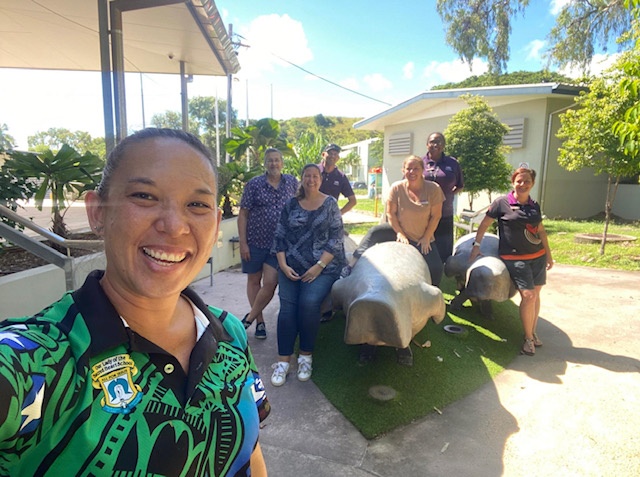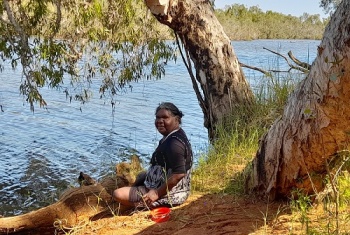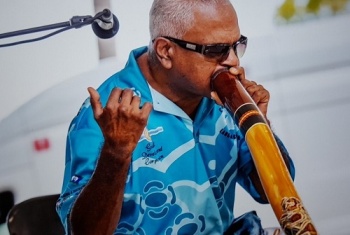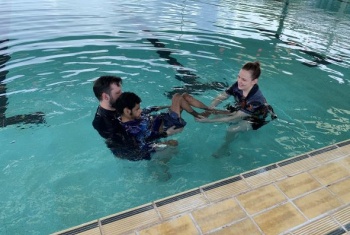Rurally, regionally or remotely, the NDIS is committed to connecting with Aboriginal and Torres Strait Islander communities.
Highlighted during National Reconciliation Week, where the country comes together to honour Aboriginal and Torres Strait Islander history and culture, the NDIS’ proactive approach to breaking down barriers in communities across the country continues to strengthen these relationships.
With culturally appropriate pathways into the Scheme more crucial than ever after the Coronavirus pandemic impacted the NDIS’ ability to visit remote communities over the past 12 months, great strides are again being made.
In person Community Access Clinics have returned, and with Remote Community Connectors (RCC) in place in many remote communities to support Aboriginal and Torres Strait Islander people who may be eligible for the Scheme, a resumption of face-to-face contact is again changing lives.
Building on strong foundations created prior to the pandemic, NDIS Access Assessor and proud Aboriginal woman Purdey Cox said positive impacts on rural and remote communities were being felt.
“Our Remote Community Connectors and the Community Mainstream and Engagement Team build strong relationships and connections within our Aboriginal and Torres Strait Islander communities, and the National Access and Reviews Branch (NARB) has done a wonderful job of building the NDIS’ profile,” Purdey said.
“Community Access Clinics came back online in March of this year and I have been fortunate to conduct clinics in Doomadgee and the Torres Strait Islands so far.
“In Doomadgee, we were able to access the school and work closely with the Guidance Counsellor and Queensland Health to have children diagnosed and enter the Scheme quite literally on the spot, and in some cases, the next day they were receiving their first plan meeting.
“We have been able to strengthen our processes and have work completed before setting foot into community, and our first Torres Strait Island Access Clinic was a huge success.”
Like the respect, cultural understanding, and communication required for driving reconciliation, the NDIS’s approach to connecting Aboriginal and Torres Strait Islander communities honours these values.
Adhering to culturally appropriate pathways, team members of broader access clinics on the ground are also qualified medical professionals, who are able to assess and diagnose certain conditions on site, and provide detailed functional assessments.
In preparation for clinics, RCCs provide our staff, like Purdey, with a list of potential participants for each clinic, from which pre-screening checks are carried out to ensure a streamlined process.
Purdey said while the efforts of those out in regional and remote communities meant great strides had been made, the finished product remained a work in progress.
However, assisting to change the lives of Aboriginal and Torres Strait Islanders living with disability is always a proud moment for Purdey, and one she cherishes.
“As an Aboriginal employee, I am extremely passionate about the work the NARB does in remote communities and I feel enormous personal and job satisfaction with the successes we have achieved,” she said.
“I especially enjoy sharing my experience and cultural knowledge with fellow colleagues, and it is important for the NDIS to promote and celebrate National Reconciliation Week as we continuously work towards strengthening our relationships with Aboriginal and Torres Strait Islander communities.
“Reconciliation is a journey for all Australians, as individuals, families, communities, organisations and importantly as a nation. We all have a role to play, and in playing our part, we collectively build relationships and communities that value Aboriginal and Torres Strait Island peoples, histories, cultures and futures.”



